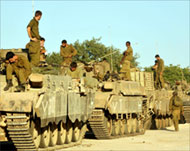Lebanon: A month into war
In a café in the east Beirut neighbourhood of Gemaizeh there is nothing about the atmosphere to suggest that there is a war going on. Well-dressed customers chat over food and drinks and others read a newspaper while sipping coffee.

But suddenly the calm is interrupted by the loud thud of an Israeli air strike in the southern suburbs that rattles the windows. People briefly exchange glances and then return to their conversations as if nothing had happened. With a sarcastic smile on his face, a waiter says: “It’s okay! That was a door slamming … a very big door.”
After one month of war the Lebanese are trying their best to carry on as normal but many say it’s becoming increasingly difficult to ignore the conflict that is engulfing their country.
Nazha Merebi, a graphic designer, said while lying on a sun-lounger at a beach club in west Beirut: “People are trying to keep a normal life. My friends are going to the beach every day and go to work for a few hours.”
The club is still busy despite the black sludge that coats the sea caused by an oil spill from a power station south of Beirut that was hit in an Israeli air strike three weeks ago.
Merebi said: “I think if you don’t try to stay normal it makes you sicker. You at least have to pretend that you have a normal life. That’s the way of fighting it and dealing with it.”
Rising toll
“I think if you don’t try to stay normal it makes you sicker. You at least have to pretend that you have a normal life. That’s the way of fighting it and dealing with it” |
But with a death toll of almost 1000 Lebanese and the destruction of much of the country’s infrastructure, many Lebanese are beginning to lose hope.
Rami Rajeh, a 28-year-old publisher, said: “I feel tired, depressed, fed-up and anxious. You know it’s an accumulation of negative feelings.”
Beirut is normally one of the most vibrant cities in the Arab world but despite some pockets of normality an eerie calm hangs over the city and life is becoming harder for many of the city’s inhabitants.
The conflict has brought the economy to a near standstill. Companies that have shut paid staff their July wage in full and promised half of the August salary but many will be unable to retain their employees if the conflict continues any longer.
Fuel supplies are dwindling and long queues form outside petrol stations as motorists wait for their $7 ration.
Economists estimate the total cost of the conflict to the economy so far is around $5billion. According to the Lebanese government the Israeli offensive has displaced more than 915,000 people and destroyed around 7000 houses, 175 factories and more than 150 bridges and overpasses.
Lose everything overnight
I think the future looks very bleak … you don’t feel it’s promising. If it drags on I will definitely leave, it’s the only option” |
In just one month much of what was rebuilt since the end of the civil war has been destroyed and Lebanese say this proves that in this country you can lose almost everything overnight. Many are asking themselves if Lebanon has any future for them at all.
Rajeh said: “I think the future looks very bleak … you don’t feel it’s promising. If it drags on I will definitely leave, it’s the only option.”
For many the conflict has brought back dark memories of the civil war and with it renewed feelings of trauma and stress.
Marwan Gharzzedine, a psychologist, said: “A lot of individuals in Lebanon, especially after the war, had depression and post-traumatic stress disorder [PTSD], this has slowly been taken care of. But now a lot of people have had these symptoms much faster because the PTSD was already there.
“So on the one hand it’s bad because a lot of people who thought they were healing, it came straight back but it also helps that a lot of people have had experience with this.”
Reeling
 |
|
The Israeli offensive is the latest |
The Israeli offensive on Lebanon is the latest catastrophe that has hit the country in the last four decades. Lebanon was still reeling from the assassination of former prime minister Rafic Hariri last year and many now fear their country is destined to be dogged by instability and war.
But others hope the country will finally learn from past mistakes and take measures to ensure that something like this never happens again.
Vartan Avakian, a 29-year-old filmmaker, said: “I feel that as a country we have been driving the same roller coast up and down the same cycle.
“I feel very bad that we have been doing this over and over again without even building the concept of a nation. I would like to believe that maybe this would be the last time.
“This is just a hope.”